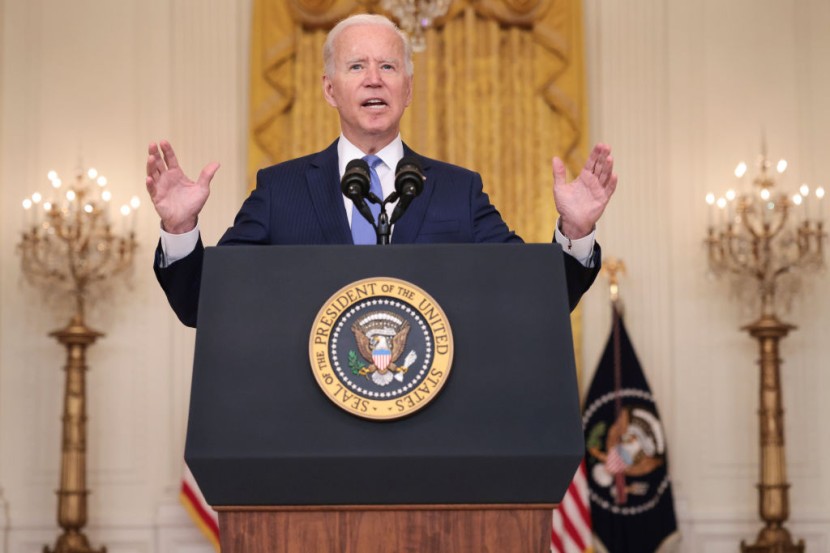
The decision by President Joe Biden's administration to seize $3.5 billion in frozen Afghan funds and distribute it to legal proceedings pursued by relatives of those killed in the 9/11 attacks has sparked outrage across Afghan society, threatening to turn the country and its ruling Taliban-led government into enemies once more.
Unless Washington changes its decision to freeze some of Afghanistan's assets as compensation for victims of the 9/11 attacks, the Taliban have declared that Afghanistan would be compelled to reevaluate its attitude toward the US.
Biden Unfreezes Afghan Funds for In-Country Relief, 9/11 Victims
Last week, US President Joe Biden confiscated $7 billion in assets belonging to the former Afghan government, to divide the monies between victims of the 9/11 attacks on the US and badly needed help for Afghanistan's post-war reconstruction. The seizure sparked outrage among the country's new Taliban officials, who described it as a "theft" and a symbol of the United States' "moral degeneration."
Hundreds of millions of dollars were at risk in Biden's remarkable move, as the contradictory, highly sensitive concerns of a humanitarian crisis in Afghanistan, the struggle for recognition by the Taliban, and the drive for justice by families affected by the 9/11 atrocities collided.
Since last year's Taliban takeover, the money has been stranded in the New York Federal Reserve, according to a US official, partly due to foreign funding provided to bolster the now-defunct Western-backed Afghan government. No other country has recognized the Taliban-appointed government, which fought US-led forces for 20 years and now controls the whole country, mostly due to its human rights record, SBS News reported.
Taliban Call on Biden To Reverse Move
Protests erupted in Kabul, where the Taliban has been leading an interim government since the United States ended its two-decade war in Afghanistan following the 9/11 attacks last year. Despite its tumultuous relationship with the United States, the newly constituted Islamic Emirate has sought international recognition and has so far signaled a desire for amicable relations with Washington.
According to Al-Hanafi Wardak, a well-known Taliban member, this might change. He refused to mention the victims of the 9/11 attacks carried out by non-Afghan members of the then-Afghanistan-based Al-Qaeda terrorist group "since it has nothing to do with Afghans," but expressed scorn for the choice by the United States.
Efforts are being made to ensure that "no benefit goes directly to the Taliban," and that a trust fund to handle the assets is being established, as well as discussions about which civil actors in Afghanistan will receive the funds in the end. Given the group's status as the country's de facto ruler, Wardak was outraged by the decision. Under the DAB, he said, these monies were "not for the everyday needs of Afghans," but rather for state-related activities.
While the United States has continued to provide humanitarian aid to Afghanistan's approximately 40 million people, Wardak believes the choice would only exacerbate the country's problems. The Taliban's economic crisis is deepening, exacerbated by a severe winter and a shortage of basic commodities, as per Newsweek via MSN.
If President Joe Biden does not alter his "unjustified" decision to return only half of Afghanistan's funds, the Taliban have threatened that they would reassess their approach toward the US. Mullah Yaqoob, the interim Afghan defense minister and son of Taliban founder Mullah Omar, also called the decision "cruel" in an interview with RTA, the Afghan state media, The Straits Times reported.
Related Article : Biden Warns Putin of 'Swift and Severe" Consequences If Russia Attacks Ukraine; Moscow Still Open For Diplomacy
@YouTube








